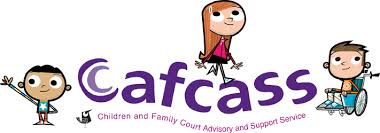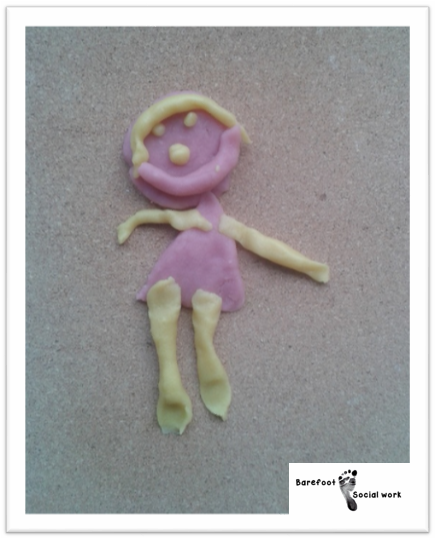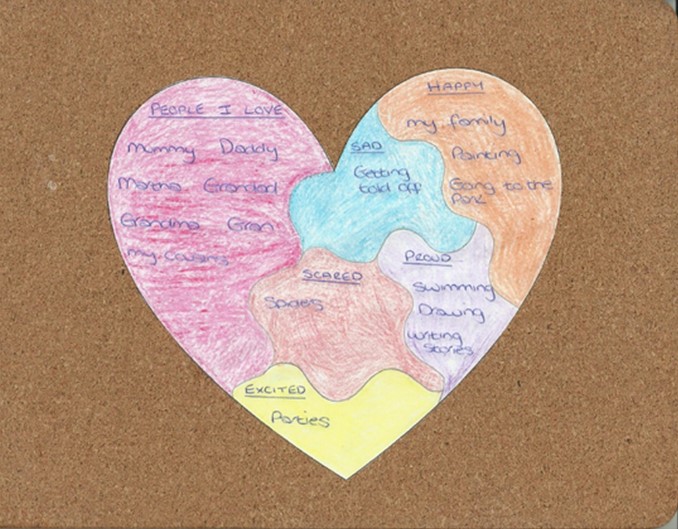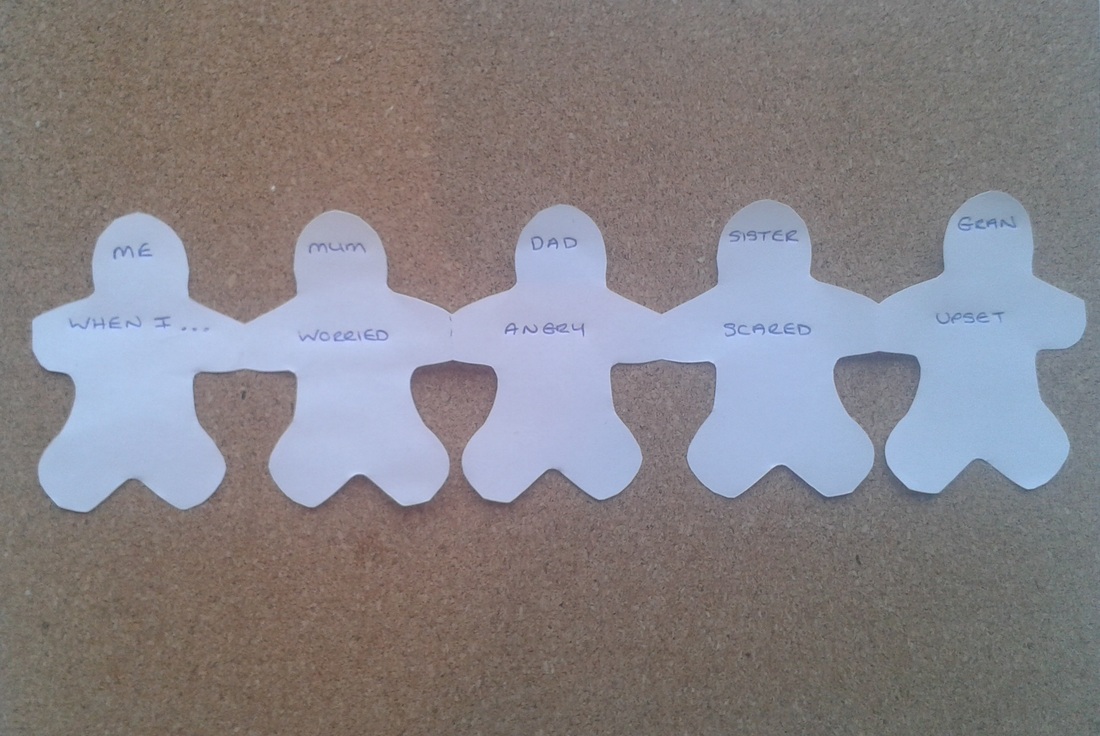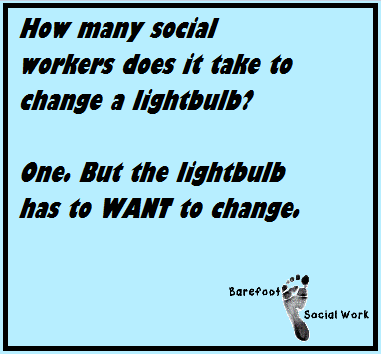|
A friend asked me about e-safety today. She was concerned after finding her child on an inappropriate website and panicked. Her initial reaction was to revoke all on-line privileges as she did not feel confident in her ability to manage the situation. This is a natural reaction. We often want to remove our children from all situations which might cause them harm but in this day and age, it isn't particularly realistic. Children need to learn how to use computers and the internet. It will play a huge part in their lives growing up and should be supported if they are to enjoy and achieve, make a positive contribution and achieve economic well-being. So, here are my top tips for protecting young children (Foundation and Key Stage 1) whilst on-line. I will write a separate post for older children at a later date.
It's never too early to start talking to your child above staying safe on-line. There are a number of great resources available for parents and professionals to download. One of my current favourites is Smartie the Penguin by ChildNet International. You can download the story from the tools section of this website along with prompts for exploring the themes raised. It is a great way of introducing the boundaries we highlighted earlier in a child centred way.
The story follows Smartie the Penguin as he learns what to do when pop ups appear, when he finds himself on an inappropriate webpage and when he receives a message from a stranger. There are also a number of books that you can share with children to explain the importance of internet safety. Chicken Clicking is described as Little Red Riding Hood for the iPad generation; this is the perfect book for teaching children how to stay safe online. Penguinpig teaches children about stranger danger online. When a little girl reads about a penguinpig on the Internet, she decides that she must go and find one. Not telling her parents, she sets off to the zoo and carefully follows the instructions from the website. Penguinpig has received acclaim from children's authors Andrew Cope and Ian Whybrow, and has been recommended for families and schools by Claude Littner (BBC1's The Apprentice). The Internet is Like a Puddle by Big Hug Books attends to the wonderful aspects of electronic communication as well as gently discusses some of the possible pitfalls of sharing, chatting and using data. The Big Hug books grew out of letters sent to children and their families after their psychology sessions. Each book has its origins in a real need for a real child with a real problem and offers real strategies from a real psychologist. The heart-felt illustrations and simple words aim to simplify tricky situations and soothe strong emotions. The books aim to give children, and the people who care for them, a way to talk about problems. Digiduck's Big Decision is an illustrated children's book that tells the story of Digiduck and his friends, to help children understand how to be good friends to others on the internet. Designed for children age 3-7 years (Foundation stage and KS1) this book is very accessible for this audience. I hope that you find this helpful. It can be a little intimidating when our children venture into the virtual world but with support and boundaries they will have have access to a resource with huge educational and social value.
0 Comments
Cafcass have just published their third survey of Guardians’ views regarding care applications (s31 Children Act 1989) made by local authorities.
The aim was to gauge the views of Guardians in relation to care applications received by Cafcass during the period 11 – 29 November 2013, specifically in relation to:
Key findings from the research include:
This research will come as welcome affirmation to Social Workers in the sector whom seldom see their dedicated work with children and families recognised in the public arena. However, it is disappointing that I was unable to find one news article related to the report during a quick Google search. News agencies are quick to pick up on damning findings from serious case reviews but are not so interested to learn that on the whole Social Workers do a very good job safeguarding and protecting vulnerable children. If you would like to read the research in full you can find it here. Play dough is an excellent aide for working with Children but when you are using it with multiple clients it can quickly become mixed up and dry out. I don't know about you, but whenever my kids are playing with the bought stuff I get a bit annoyed when it becomes a mangled mess of colour within seconds. That's why I make my own. It's so cheap, easy and quick to do. Because of this, I really don't mind replacing it more frequently. To make your own you will need: 1 cup of flour 1 cup of water 1 cup of salt 1 table spoon of oil 1 table spoon of Cream of Tartar Food colouring (Supermarkets only seem to stock 10g sachets of Cream of Tartar nowadays so I buy mine online as it works out cheaper that way and lasts 'forever') Heat the water, oil, salt, and food colouring. Once it starts to boil take it off the heat and stir in the flour. Once all the ingredients are combined, knead the dough until you reach the right consistency. Be careful though as it will still be quite hot! Using Play Dough in Direct Work There has been much research into the fact that both children and adults are more open and honest when they have something to hold. That's why I always accept the offer of a brew when making visits to clients. They are likely to make one for themselves at the same time but you don't have to drink it if your not really a tea drinker. I've also mentioned before that children are often more willing to open up when they are engaged in an activity. Play dough can be used for it's sensory qualities, giving children something malleable to hold and squish in their hands whilst you explore issues affecting them and their family. To use in direct work set up a simple invitation to play in a quiet room where you are unlikely to be disturbed. The last thing you want is for someone to walk in looking for a stapler when you are on the brink of an emotional disclosure.
You can also use play dough in directive play for a specific assessment purpose. Children could be encouraged to create themselves or others out of play dough. This is a variation on the draw-a-person technique and should be interpreted in a similar way. This is a brilliant activity to do with new clients. Children, in particular, find it useful to have a visual aide when talking about their emotions. The one above is a very simple illustration. You can include as many or as few sections as you wish, assigning appropriate labels depending upon the child's particular circumstances. It's a great way to find out about who is important to the child and what is happening in their life. I would recommend guiding the child through the activity before inviting them to colour each section whilst you explore any issues raised further. Children often feel more comfortable opening up when they are engaged in a simple activity.
It is important to be mindful of the fact children sometimes offer answers that they believe are expected instead of what is true for them. For example, when completing the example above, my daughter said "my family(?)" when asked what makes her happy. I have no doubt that family brings her great joy, however, she offered the answer as a question, seeking my reassurance that this was the right response. Professionals are usually acutely aware of this behaviour and should be reflected in any analysis of the results. Unlike intelligence and physical attractiveness, which depend largely on genetics, empathy is a skill that children learn. Although the best training for empathy begins in infancy, it’s never too late to start. Infants and toddlers learn the most by how their parents treat them when they are grumpy, frightened, or upset. By the time a child is in preschool, you can begin talking about how other people feel. When working with children and young people whom display complex and/or challenging behaviour I have used paper dolls to encourage them to think about how their behaviour impacts upon others and visa versa. The activity can be used in several situations and also with adults. It doesn't have to be about discussing negative behaviour. You could also use it as an opportunity for families to share pride in one another's achievements. Some families find it difficult to share emotions with one another. In this instance you might write a child's recent achievement on the first doll before passing it to other members of the family to complete their own, describing how they feel.
Another idea might be to use it as an opportunity for children to voice their feelings about a parents behaviour during child protection cases. The end result will provide the parent with a visual reminder of how their choices impact upon their children's welfare. 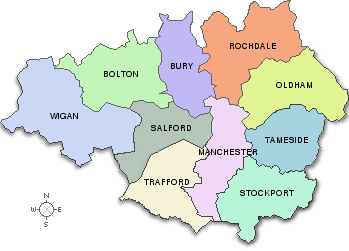 This week it was announced that an agreement for devolution within the Greater Manchester Combined Authority has been reached with central government. The agreement, reached with the Chancellor who has called for a 'Northern Powerhouse' to maximise the economic potential of the north - and building on the work of the Greater Manchester Combined Authority (GMCA) established in 2011 - will give greater powers to the combined authority working in partnership with a directly-elected Mayor. The agreement, which will need to be ratified by all ten Greater Manchester Councils in due course, signals a step change in the willingness of government to devolve power within England. Greater Manchester has long been recognised as being at the forefront of the debate with government on devolution in England. This is the first such deal struck with a city region and this is a recognition of the fact that Greater Manchester has established better and stronger collaborative arrangements than any other city region within the UK. It is hoped that these will open up new opportunities for increasing economic growth and improving the quality of life of Greater Manchester residents by replacing an over-centralised national model, imposing ‘one size fits all’ solutions – with greater local control over certain budgets and powers. For example, they make promises to unlock huge public transport improvements and help tens of thousands of Greater Manchester residents into work. Under the settlement, a directly-elected Mayor for Greater Manchester will be created. The first Greater Manchester Mayoral elections are expected to take place in 2017. Some powers will only be devolved to Greater Manchester once the Mayor is in place but a significant number of initiatives will be taken, starting in the New Year, in advance of the election of the Mayor. These will include the establishment of a new funding deal which will enable Greater Manchester to invest in further extension and strengthening of the city regions transport infrastructure. The deal is worth £900 million over the next 30 years. Powers to be devolved to Greater Manchester include:
The existing Police and Crime Commissioner’s role will also be merged with the Greater Manchester Mayor’s role. Indeed the Mayor of Greater Manchester is likely to get even more powers than the London Mayor with control over it's health and social care budget. However, not everyone is convinced about the announcement. Geraint Johnes (Professor of Economics in the Department of Economics, Lancaster University) has said that in his opinion these powers are modest and do not offer the promise of any real capability to stimulate economic development. But what does all this mean for Social Work? Firstly, GMCA and Greater Manchester Clinical Commissioning Groups will be invited to develop a business plan for the integration of health and social care across Greater Manchester, based on control of existing health and social care budgets. In the document published jointly by HM Treasury and GMCA specific mention is given to making use of of existing budgets and including specific targets for reducing pressure on A&E and avoidable hospital admissions. It says that the government will also work with local government and NHS England to give greater certainty about health and care funding settlements. This includes by working towards multi-year allocations at the next Spending Review. It assures us that the Treasury will support a Greater Manchester-wide health and social care strategy which fairly and accurately reflects the priorities of the full range of NHS and social care stakeholders, including acute trusts. What it does not say is specifically what services in the new world will look like. It say that agreement from Greater Manchester Clinical Commissioning Groups will be required to implement any plan for services and budgets which are their responsibility. Consequently, we will have to wait for a peek of the proposed business plan mentioned above to give us any idea of what this really means for social work. I am sure that it is little surprise to those working in the sector that greater emphasis has been placed on health services in the published literature thus far. What it does say, however, is that the Treasury has agreed to work with Greater Manchester on their early years pilot, with a focus on providing advice and support in ensuring effective pilot design and the creation of a robust evaluation framework. The treasury will work with Greater Manchester on engaging with schools to support early intervention and to make the case for this more widely across Greater Manchester. This is good news for the vulnerable children that may otherwise go unseen by professionals in the Early Years. I will of course keep you posted as further details are released. In the meantime, if you are interested in reading the agreement in it's entirety I have uploaded a copy to the Guidance section of the website. Motivational Interviewing (Miller & Rollnick, 1991) is a way of talking with people about change that was first developed for the field of addictions but has broadened and become a favoured approach for use with a wide variety of populations in many different settings. It complements the strengths based approach that is gaining in popularity and engages clients as agents of change.
Typically, in child protection parents motivation for change is presumed to be static. They either possess it or lack it and there is very little the Social Worker can do to change this. Under these conditions the Social Worker becomes a punitive enforcer of court orders and agency rules and regulations and does little to promote change. Under the threat of punitive measures parents are asked to change or else. However, it is well documented that a confrontational counselling style limits effectiveness. Miller, Benefield and Tonnigan (1993) found that a directive-confrontational counselling style produced twice the resistance, and only half as many “positive” client behaviours as did a supportive, client-centred approach. The researchers concluded that the more staff confronted substance-involved clients, the more the clients drank at twelve-month follow up. Problems are compounded as a confrontational style not only pushes success away, but can actually make matters worse. By using Motivational Interviewing interactions become more change focussed and relationships between families and Social Worker become more collaborative. The technique should be used simultaneously with other protective measures to ensure that children are safeguarded from the risk of significant harm. I trained to use motivational interviewing whilst working with an offending and addiction service in 2007. I have since found the technique to be hugely beneficial when applied to work with children and families. If you would like to learn more, Motivational Interviewing in Social Work Practice is an excellent book providing an accessible introduction to MI with examples of how to integrate this evidence based method into direct practice. You can also find some useful MI tools on my website. I've just read this article on the Guardian website. The author puts into words what I have been feeling for a while now. The general public just doesn't seems to get what it is we do! The media doesn't help matters of course. I feel proud to be a professional Social Worker. I earned the title academically with an undergraduate degree, post-graduate degree, post qualifying awards and professional development courses. I also earned respect in the field, amongst professionals and in the courts with my direct-work, assessments and analysis. I also know that there are many families and children out there that would say I had a positive impact in their lives too. I feel that the profession is a professional one with status equal to teachers, solicitors, psychologists, etc. The assessments expected of us by the courts are complex and comprehensive. We need a good grasp of sociology, psychology, and politics. Yet most, without any direct experience of Social Work, believe it's nothing more than a chat over a cup of tea. Don't get me wrong, I've managed to produce some good assessments and direct work over a cup of tea. It's just that there is a whole lot more skill to it than that. Perhaps we should promote our profession more and toot our own horns a little bit. However, at the end of the day, does it really matter? It's the results that attest to our value as a profession. It's about the children that are saved and the families that are supported.
 Simple tools and quesionnaires are a little unpopular with Social Workers, which is a pity, because if used correctly they can add value to the assessment process. I have just uploaded a copy of the Parent Concerns Questionnaire to the tools section of my website so that you can download it and use in your practice. It was originally developed in 1999 by Michael Sheppard, a professor of Social Work at Plymouth University, to research maternal depression. Since then it has been adopted and used by practitioners across the sector. It is based upon the Common Assessment Framework and takes approximately 10 minutes to complete and can be used as a starting point for discussions between parent and practitioner. However, it goes without saying that Social Workers should not rely too heavily on it and ensure that they continue to use their objectivity throughout the assessment process. There are also a number of other resources for you to download. Take a look and let me know what you think. |
AuthorI'm a Qualified Children's Social Worker with a passion for safeguarding and family support in the UK. Archives
August 2016
Categories
All
|



